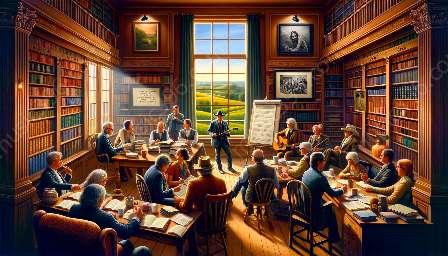Country music is a genre deeply rooted in traditional values, reflecting the lifestyle, beliefs, and culture of rural America. This article explores the rich history and enduring influence of traditional values in country music, as well as its impact on society and culture.
1. Historical Context of Country Music
Country music is a uniquely American art form that emerged in the early 20th century, drawing inspiration from folk, blues, and gospel music. It originated in the rural regions of the Southern United States and was initially characterized by its raw and unpolished sound, often accompanied by simple acoustic instruments.
The genre gained popularity during the Great Depression, resonating with people who were experiencing economic hardship and seeking comfort through music that reflected their struggles. This historical context laid the foundation for the traditional values that continue to permeate country music today.
2. Reflection of Rural Life
Country music often serves as a poignant reflection of rural life, depicting the day-to-day experiences, challenges, and triumphs of individuals living in small towns and countryside. Themes such as hard work, family, and community are recurrent in country songs, celebrating the values cherished by rural communities.
The genre's emphasis on storytelling allows it to capture the essence of rural life, conveying the pride and resilience of individuals striving to preserve their traditional way of life in the face of modernization and societal changes.
3. Family and Heritage
One of the enduring traditional values in country music is the emphasis on family and heritage. Many country songs pay homage to the importance of family bonds, loyalty, and the passing down of traditions from one generation to the next. These themes resonate with listeners who cherish the values of familial unity and the preservation of their ancestral heritage.
Furthermore, country music often celebrates the simplicity of family life, portraying a deep sense of belonging and interconnectedness, which can be a source of comfort and stability for individuals facing the complexities of the modern world.
4. Love and Heartache
Country music has a longstanding tradition of exploring the themes of love and heartache, often delving into the complexities of romantic relationships and emotional struggles. This aspect of the genre reflects the universal experiences of joy, heartbreak, and longing, resonating with listeners who find solace in the emotional honesty and vulnerability of country songs.
By addressing the triumphs and tribulations of love, country music conveys the enduring values of loyalty, resilience, and empathy, providing a musical outlet for individuals to connect with their own experiences and emotions.
5. Impact of Country Music on Society
The influence of country music on society extends beyond its lyrical content and musical style. The genre has played a significant role in shaping cultural attitudes, fostering a sense of community, and contributing to the preservation of traditional values.
Country music has served as a unifying force for individuals from diverse backgrounds, offering a platform for shared experiences and mutual understanding. Through its storytelling and relatable themes, country music has fostered a sense of empathy and solidarity among its listeners, transcending geographical and cultural boundaries.
6. Cultural Preservation and Community Connection
Country music has been instrumental in preserving and promoting the cultural heritage of rural America. By showcasing traditional values and celebrating the authenticity of rural life, the genre has underscored the importance of preserving cultural diversity and historical narratives.
Furthermore, country music has established a profound connection between artists and their audiences, creating a sense of kinship and camaraderie. Through live performances, festivals, and community events, country music has united people in celebration of their shared values and experiences, reinforcing the significance of community connections.
7. Evolution and Modern Relevance
While rooted in traditional values, country music continues to evolve and adapt to contemporary societal changes. The genre's ability to reflect the evolving experiences of rural and suburban life has allowed it to remain relevant and resonate with diverse audiences, transcending generational gaps and cultural divides.
Country music artists have addressed current social issues and modern themes, while still upholding the timeless values that define the genre. This adaptability has enabled country music to maintain its influence on society, shaping conversations and inspiring individuals to embrace the enduring principles of authenticity, resilience, and community.
8. Conclusion
Country music stands as a testament to the enduring legacy of traditional values, serving as a source of cultural preservation, community connection, and emotional resonance. Its influence on society is a testament to the genre's ability to transcend geographical, cultural, and generational barriers, fostering a sense of unity and empathy among its listeners.
As we continue to celebrate the rich history and contemporary relevance of country music, it is evident that the traditional values embedded within the genre will continue to inspire and resonate with individuals, perpetuating a legacy of authenticity, solidarity, and cultural significance.























